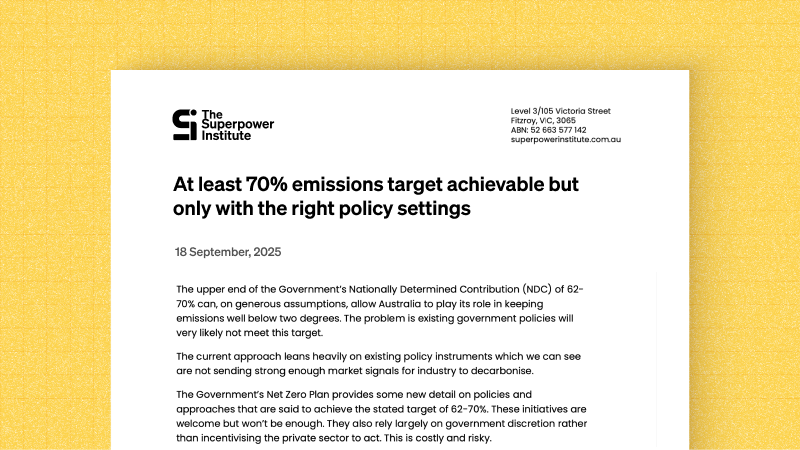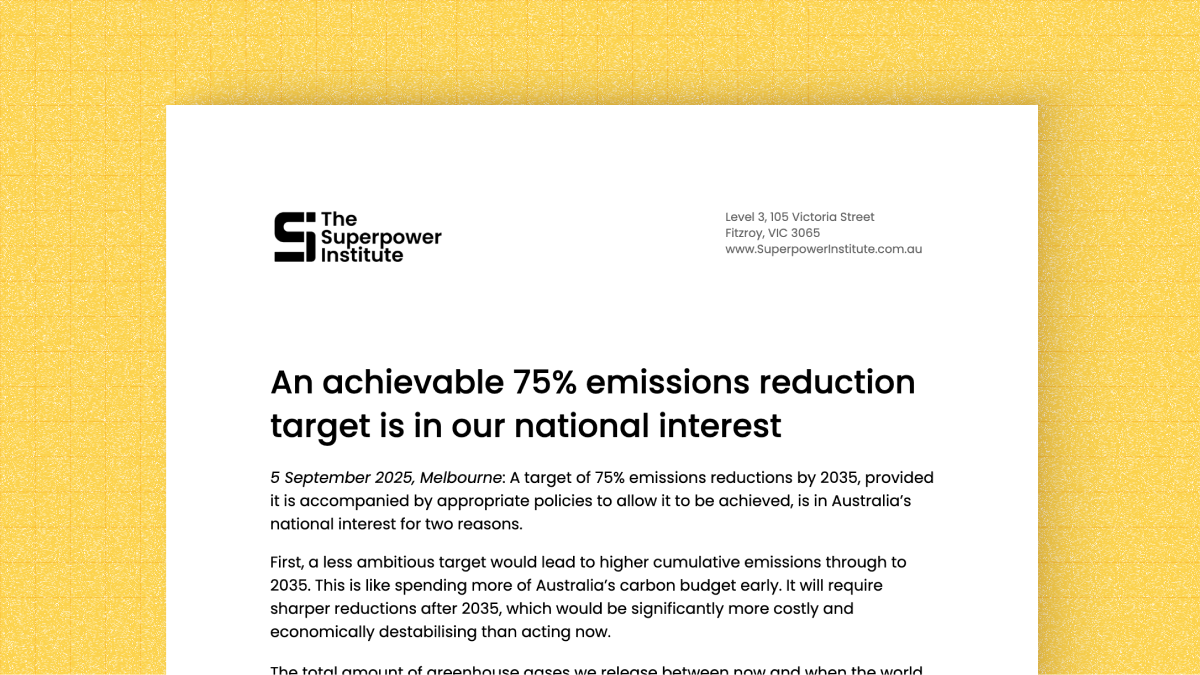The upper end of the Government’s Nationally Determined Contribution (NDC) of 62-70% can, on generous assumptions, allow Australia to play its role in keeping emissions well below two degrees. The problem is existing government policies will very likely not meet this target.
The current approach leans heavily on existing policy instruments which we can see are not sending strong enough market signals for industry to decarbonise.
The Government’s Net Zero Plan provides some new detail on policies and approaches that are said to achieve the stated target of 62-70%. These initiatives are welcome but won’t be enough. They also rely largely on government discretion rather than incentivising the private sector to act. This is costly and risky.
Chair of the Superpower Institute, Rod Sims, said:
“Current policies and the new detail in the Net Zero Plan are not enough to drive the necessary emissions reductions to meet the newly announced target.
“Even as the Government frames this as an ‘achievable target’, its cornerstone policies such as the Capacity Investment Scheme and Safeguard Mechanism will not drive the necessary market signals to achieve the emissions reduction targets.
“If Australia is to achieve a credible and ambitious emissions reduction target of a minimum of 70%, we need to energise the private sector.
“We need to provide stronger incentives for emissions reduction. The way to do this is to put a price on carbon so that fossil fuel producers pay for the damage their products do to the environment.
“If companies have no incentive to reduce emissions, then clearly, they will not.
Rod SimsWe need to provide stronger incentives for emissions reduction. The way to do this is to put a price on carbon so that fossil fuel producers pay for the damage their products do to the environment.
If companies have no incentive to reduce emissions, then clearly, they will not.
“Ross Garnaut and I in our National Press Club address urged the introduction of a Carbon Solutions Levy applied at around 105 fossil fuel production sites and on fossil fuel imports.This could be applied domestically with more than enough revenue to government for appropriate compensation to consumers.
“Imposing a domestic Carbon Solutions Levy will provide incentives for effective climate action, science-based targets can be met, full compensation can be paid to households for the price effects, and it will strengthen rather than weaken the federal budget at a time when it is under stress.”
“We also welcome the release of modelling by Treasury which shows the benefits of even a modest superpower green exports ambition. The Treasury work shows 20% lower wholesale electricity prices, $68 billion in additional exports and $2,400 increase in GDP per capita when Australia succeeds in building new industries like green iron and ammonia.”

